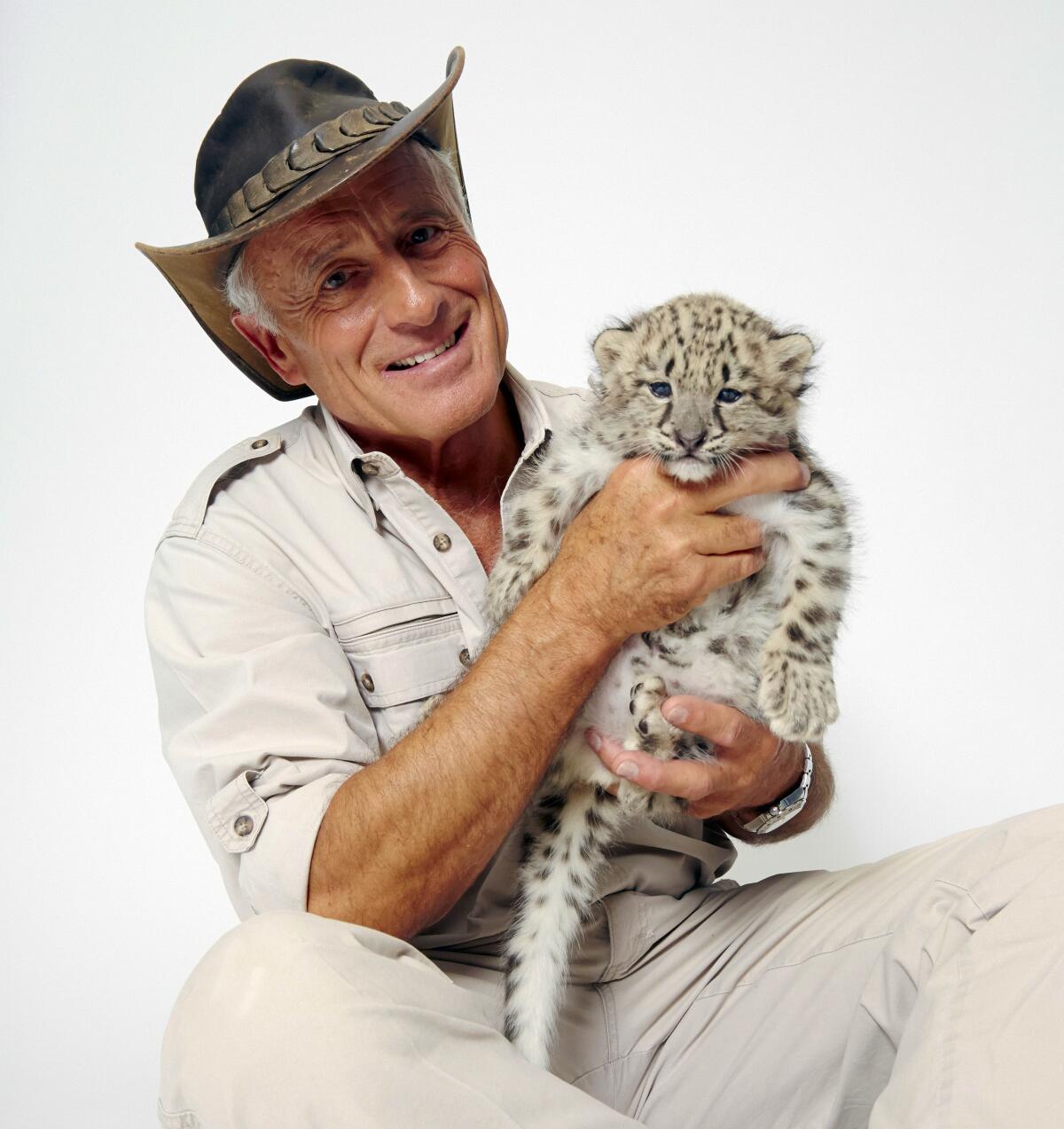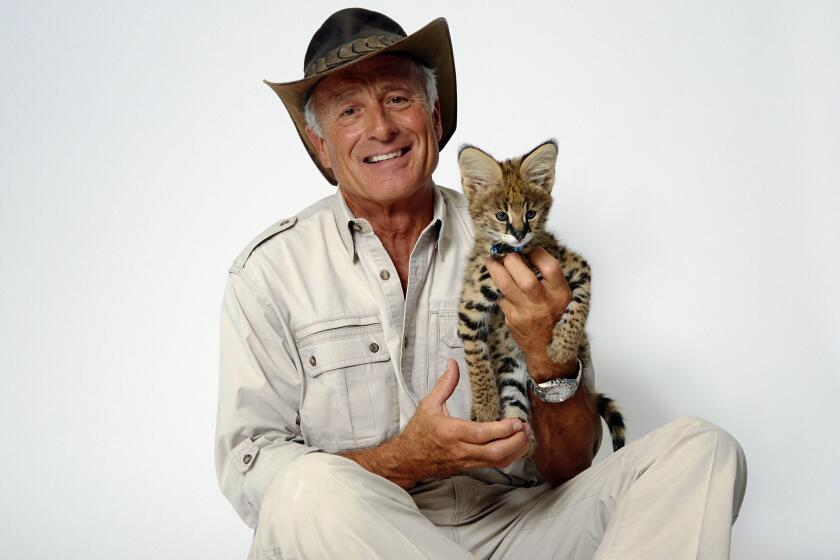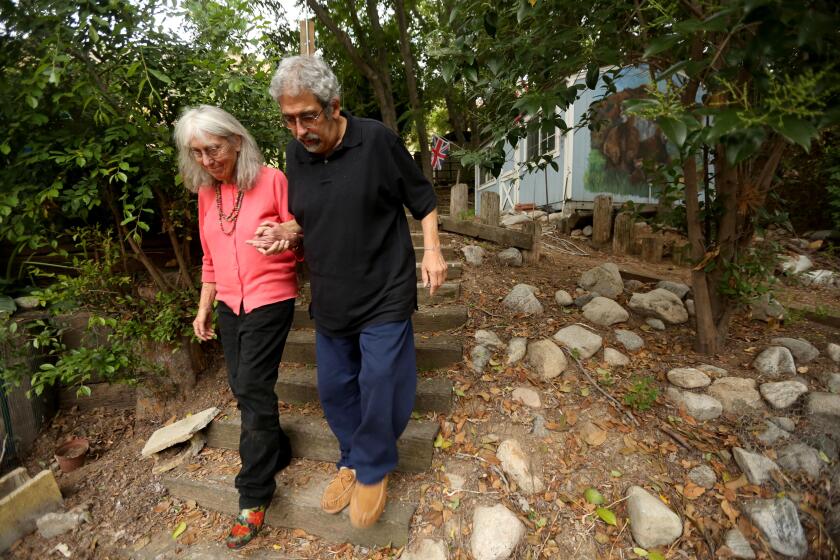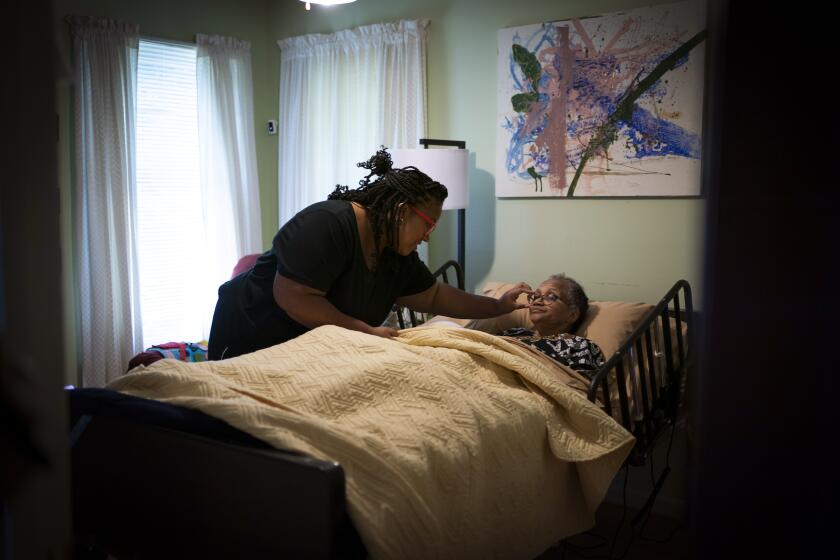Family of famed zookeeper Jack Hanna says he doesn’t know he has Alzheimer’s

- Share via
The family of animal TV show host Jack Hanna says that the renowned celebrity zookeeper doesn’t know he has Alzheimer’s disease.
The leading animal conservationist “lived in fear the public would find out” about his degenerative memory loss after he was diagnosed with dementia in October 2019, but the family went public two years ago as pressure mounted for him to comment on the embattled Columbus Zoo, of which he was director from 1978 to 1992 and for which he served as a spokesman until 2020. The 76-year-old’s condition prevents him from understanding that he has Alzheimer’s or that the family has talked about it, his wife, Suzi, 75, and eldest daughter, Kathaleen, 54, told the Columbus Dispatch in an interview published online Wednesday.
Zookeeper Jack Hanna, famed for late-night TV appearances with Johnny Carson and David Letterman, likely has Alzheimer’s, his family said Wednesday.
“It killed me to break that promise,” Suzi told the Dispatch’s Mike Wagner, referencing the pact she made with her husband of 54 years when doctors first told him that he had dementia. No one outside the family was ever meant to know. Hanna has never uttered the word Alzheimer’s, nor has his family said it to him, they said.
In his signature khakis and well-worn leather hat, the five-time Daytime Emmy Award winner became a spokesman for animals and advocated for improved wildlife habitats throughout his globe-trotting career. He focused on connecting the community with exotic creatures and believed that having people see and experience animals is key to engaging them in more impactful conversations. He famously hosted his own TV series — “Jack Hanna’s Animal Adventures,” the Emmy-winning “Jack Hanna’s Into the Wild” and “Jack Hanna’s Wild Countdown,” all still in syndication — and became a beloved talk-show fixture appearing on “Good Morning America,” “Larry King Live!” and alongside Johnny Carson and David Letterman to include the reluctant hosts in live-animal demonstrations on television.
But the Tennessee farm boy is now living in a lakeside home on a 50-acre farm in northwest Montana after spending much of his life and career in Columbus, Ohio.
There’s no remission and no cure for Alzheimer’s, but a Southern California couple find support as they negotiate memory loss.
Upon retiring from public life in April 2021, he was named director emeritus of the Columbus Zoo. That’s when his family disclosed that he had been diagnosed with dementia, which had quickly progressed in the months prior. That same year, the documentary “The Conservation Game,” featuring “Tiger King’s” Carole Baskin, mired him and the zoo in an “animal prisons” controversy and coincided with the organization temporarily losing its accreditation over financial misdeeds.
Amid demands that Hanna weigh in on the scandal, his family went public with his diagnosis against his wishes in an effort to conserve his legacy.
Hanna thought his wife had betrayed him by telling the media about his illness, which has since progressed from moderate to advanced Alzheimer’s disease.
“He just kept saying, ‘Sue, you told them, didn’t you? You promised me Sue, you promised,’” Suzi told the Dispatch. “It would have broken Jack’s heart to hear what was going on at the zoo. If we had tried to tell him, he wouldn’t have understood.”
Black Americans are more likely than white Americans to develop Alzheimer’s disease, and less likely to be diagnosed and treated. This mother and daughter are just one example.
According to the newspaper, Hanna tracked his symptoms back to 2017 and was diagnosed with early Alzheimer’s in 2019. But the disease has since advanced to the point where he doesn’t know most of his family. Hanna first denied having any issues, chalking up his forgetfulness and mild cognitive impairment to old age and his longtime attention deficit disorder. The diagnosis, he believed, was just a reflection of him never being good at taking tests.
But now, he can’t remember if he’s ever been to Columbus, where he once said he wanted his ashes spread when he died. He only remembers Suzi, his dog Brassy and, occasionally, his eldest daughter, Kathaleen, when she visits from England to help care for him. (He does not remember his other daughters, Julie and Suzanne, and his doctor told the newspaper that people with his diagnosis typically live eight to 12 years after the onset of their symptoms.)
“My husband is still in there somewhere,” Suzi told the Dispatch. “There are still those sweet, tender moments — you know, pieces of him that made me and the rest of the world fall in love with him. It’s hard. Real hard some days. But he took care of me all those years, and so it’s my turn to take care of him.”
She added: “The Jack people knew isn’t here anymore, but pieces of my husband are. And I’m going to hang on to them for as long as I can.”
U.S. health officials have approved a new Alzheimer’s drug that modestly slows the brain-robbing disease
Speaking publicly for the first time since announcing his diagnosis, the Hannas said they’re sharing the famed zookeeper’s story because they don’t want other families to feel alone as they struggle with the overwhelming demands of the disease.
“If this helps even one other family, it’s more than worth sharing dad’s story,” Kathaleen told the newspaper. “He spent a lifetime helping everyone he could. He will never know it or understand it, but he is still doing it now.”
More to Read
The complete guide to home viewing
Get Screen Gab for everything about the TV shows and streaming movies everyone’s talking about.
You may occasionally receive promotional content from the Los Angeles Times.











